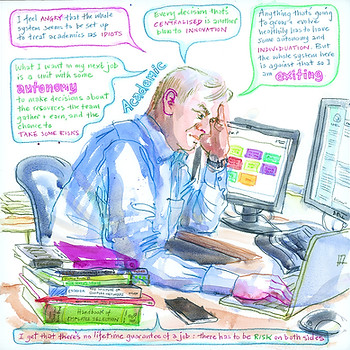
Centre for Transformative Work Design
Innovative research. Informed leaders. Inspired workers.
Centre director

Professor Sharon Parker
About the Centre

Good work design makes life better
Good work design means workers have moderate demands (e.g., reasonable work loads) combined with positive aspects of work such as job autonomy, social contact, and task identity.
Our vision in the Centre is to transform work, through work design, to create better lives for workers, better results for organisations, and better outcomes for all in society.
Research spotlight:
The dull job effect
Our new research published in the Journal of Applied Psychology (2019) has found that managers and professional employees with dull and boring jobs are more likely to design jobs for their colleagues that are:
-
Demotivating
-
Disengaging
-
Low Skill Repetiton
A series of three studies assessed how people design jobs for others as well as how their personal backgrounds contributed to these decisions.

A key insight suggested that individuals who designed poor jobs were more likely to lack autonomy in their own role. This research suggests that poor work design does not happen in isolation, rather, it can create a ripple effect. If organisations wish to remain innovative, agile and high performing, it’s critical they equip themselves and their managers with the tools to design better work.
